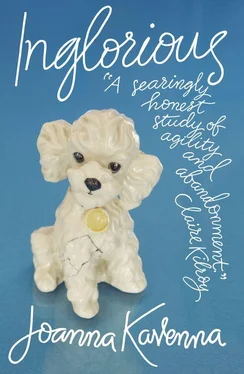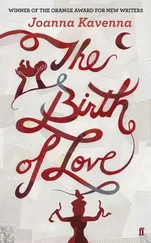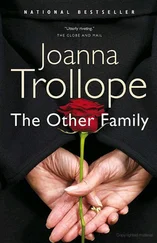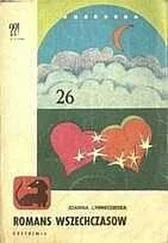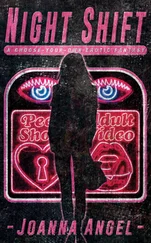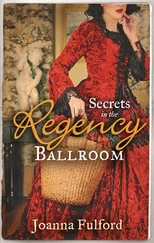Things to do, Tuesday
Find a place to stay — call Andreas
Get a job
Phone Liam and ask about the furniture.
Call the bank and beg them for an extension — more money, more time to pay back the rest of your debt.
Phone your father and apologise
Read the comedies of Shakespeare, the works of Proust, the plays of Racine and Corneille and The Man Without Qualities.
Read The Golden Bough, The Nag-Hammadi Gospels, The Upanishads, The Koran, The Bible, The Tao, the complete works of E. A. Wallis Budge
Read Plato, Aristotle, Confucius, Bacon, Locke, Rousseau, Wollstonecraft, Kant, Hegel, Schopenhauer, Kierkegaard, Nietzsche, and the rest
Distinguish the various philosophies of the way
THE TEMP
Distribute presents
Be polite and grateful
When the doors opened they streamed into the carriage, in search of the perfect seat. Within seconds, the seats were full of people. Still, Rosa was confused and couldn’t understand. She was constantly surprised by density, the sheer quantity of things around her. She wondered why they were heading north, all these people with their bags and coats. Entire families, squashed in with their cases and sandwiches and piles of crisps. Rustling away, feeding sandwiches to their young. If the train crashed, or was blown to pieces, dynasties would be wiped out. The children were already on the squawk, beginning their small symphony of need, trilling up the octaves. Rosa was a solitary passenger and this detail made her relatively desirable. Soon she was surrounded by the old in search of silence. She was joined by a woman with a Bible, a headscarf and a stringy neck, and an ancient man who edged slowly into the seat opposite her, kicking her foot and apologising. He apologised for so long that Rosa could see they were in danger of having a conversation. Really what she mostly wanted to do was sleep, but though she closed her eyes the sound of voices kept her conscious. Everyone was arranging plastic bags and bottles of water. There was a constant low-level rustling of bags and food and papers. A man was guarding an empty seat beside him. Earlier he had eaten a sandwich and left cream cheese and crumbs around his mouth. In his hand he held a piece of paper with PRODUCTION QUOTA written on it. The rest Rosa couldn’t read. His wrist was covered with threaded scars, as if he had once smashed his fist through a window. She wondered if he had done it as a child. And now he was a fat-cheeked man of fifty or so, one hand in his salted hair.
Days were passing, time’s limitless express-train was speeding onwards, hurtling everyone towards their own personal tunnel. Time’s TGV was breaking the sound barrier, though her real-time InterCity slugtrain was moving more slowly. She thought of a slogan for the railways in Britain, like an old slogan she had heard as a child, ‘We’re getting there’, only more applicable to the present day: ‘Our Trains are Slower than Time Itself.’ Yet, having queued patiently outside the carriage, nervous and worrying about her bags, Rosa had her own little seat, and her legs fitted snugly against the ancient legs of her opposite neighbour. The train had a welcoming smell, a homely aroma of coffee and chips. The windows were clean and through the glass she saw the girders of the station. ‘Welcome, ladies and gentlemen,’ said an automated voice. ‘Please remember that you are required to travel with a valid ticket. This train will call at Luton, Birmingham International, Birmingham New Street, Wolverhampton, Crewe, Preston, Manchester Piccadilly, Kendal, Oxenholme and Glasgow Central. There is a buffet service selling a wide variety of sandwiches, crisps, tea, coffee, hot chocolate, cakes and biscuits. First-class accommodation is at the front of the train. We hope you enjoy your journey.’
The train eased northwards, passing under a steel canopy into the dim light of day. They passed rusted tracks, faded grass sprouting between them, and Victorian bridges reinforced with steel. PRIZE she saw painted on the brick arch of a bridge. PRIZE. And the prize was what? TEMP TEMP TEMP she saw, and nodded. They passed a depot made of corrugated iron. She saw the blurred front of a carriage inside. They passed metal grilles and the red steel of a bridge. Cameras and lights suspended above the tracks and an interlocking network of wires. Metal railings merged into a grey wall as the train picked up speed. Now the sloped sides of the cuttings were covered in foliage, dry shrubs. ‘I’m on the train,’ said a man to her left. ‘Did Ed get the report done? On the way back I’ll get a taxi.’
‘You can’t worry about it,’ said another to his phone. ‘Don’t worry about it. It’s fine.’
‘Tell Ed to sort out the report. I’m back in the office tomorrow.’
Outside the clouds were heavy above the long lines of trees. There were broad-brushed green fields and rows of post-war houses with bay windows and long thin gardens. Out of town debris, business parks and warehouses and building sites with planks stacked in piles. As the train climbed to its top speed, objects outside were flung backwards before she could fully describe them to herself. ASIA’S FINEST FOODS, she saw, on the edge of a warehouse. ‘The buffet car is now open’ said the tannoy. ‘The buffet car is selling a wide variety of sandwiches, crisps, tea, coffee, hot chocolate, cakes and biscuits as well as an assortment of narcotics and bandages, soma, hemlock, and gold, pure gold.’ She kicked off her shoes and slept, head on the window, arms on the table, and woke with a start to discover that the train was running even later. Something had failed, some rusty old signal, but she found she accepted it all, every minute tacked onto the journey, she reclined into it, watching the green and grey of Britain pass outside the window. The view was made up of contrasts: the soft moss on the bridges, the variegated textures of trees and fields and the primary colours of the stations. As they moved slowly through one station she saw FOOD TO GO in orange neon and turned her head away.
She put her hand above her eyes and stared out at fleeting buildings, factories and clouds of smoke and the compressed shapes of city centres. There was a thick smell of hops for a while, and then a sweet coil of sugar as they passed another factory. She saw rows of cars, parked at a station, but the train passed through with a shudder. BLUE written on a bridge, and something else she couldn’t read. The train moved through stretching ranks of suburbs, past the shabby backs of interwar houses, walls covered with peeling plaster, brickwork crumbling. Sand and gravel, litter at the side of the tracks, mingled with weeds. Then there were places so steeped in tranquillity that she envied their occupants: long low fields, pale lakes and careful gardens. In places the tracks cut a furrow through the land, and the train barely lifted its head above the fields. Then she only saw the outline of trees against the sky.
When the train slid into Birmingham New Street, the carriage partly emptied. The old man opposite edged slowly out of his seat, hitting her feet and smiling apologetically. She nodded goodbye. With a bank of vacant seats around her, Rosa found she could read in peace. She read slowly through the leftover newspapers, noting the by-lines of her former colleagues, and felt no sense of regret at all. She liked the fact they were all still there, working hard, advancing every day. At least poor old Peter hadn’t been let down by everyone else. She was glad about that, Peter with his worried way of looking and his tempered charisma. It was all too far away now, as the train moved through an old brick tunnel into a flush of countryside. The last suburbs receded, and the crumbling warehouses and chimneys gave way to fields. She saw rubbish and dust at the edges of the tracks. Beyond was a garden and she saw a child running on the lawn. As the train drew northwards there were long grey-backed ridges, sprawling under the sky. Then she smiled. Years and years, she thought, feeling a retrospective urge coming on. The train was taking her through the secondary scenery of her childhood, the provincial towns with their flyovers and whitewashed shopping centres and the long lines of the hills. She remembered their family journeys to the north. She travelled with her parents on the train. Oh lovely, the past, she thought, sinking idly into thoughts of when she was a child, and her family had gone on holiday to the Lakes, year after year. Those were comforting memories, purely happy, though she felt a jolt as she summoned them. They had rented the same cottage almost every time, near Lake Windermere, in the grounds of a farmhouse. Rosa’s mother grew up in the Lakes, near Barrow, and when grandmother Lily and grandfather Tom were still alive they used to come to visit. She was thinking about these summers, and she remembered the cottage they rented: slate slabs, a large fireplace with a bread oven, window seats in the bedrooms. The doors had latches, exotic to a child. The farmhouse was larger and more terrifying than the cottage, and the old professor who lived there said the cellar was haunted. It was a friendly ghost, he added, but after that Rosa could hardly bring herself to cross in front of the big house, and she only played in the small garden of the cottage. She wondered if the old professor was still there, still anywhere this side of silence. But he had been ancient when she was a child. He must be long vanished, he and his wife. Still, she thought she would find out what had happened to him while she was there. She wondered why she had never written to him. That would have been a gesture, kind at least. Dear Professor, I wanted to let you know that I was there, years ago, at your house. I was small and I remember the woods seemed like immeasurable forests. Your orchards were abundant with apples and — I confess! — I sometimes ate the windfalls. I remember the smell of wet ferns, and the ferns stuck to my legs as I went down to the lake to swim. In the mornings I woke to the sound of birds in the trees. When we arrived the cottage was often cold, and yet you had always left wood for a fire. My parents would light it and I would sit there looking at the flames. I remember placing my hands on the big cold stones of the walls, the slate stones. One night I slept in a tent in the garden. I remember my father had to stay there with me because I was so small. When it rained we played Monopoly. My mother always won. It drove my father mad. I don’t know why I never wrote before. She should write to him while she was there! But then she thought she wouldn’t after all. There would be the need to add, Recently, my mother died. Very abrupt, no pain. It was absurd, but it had stopped her writing to so many people: old friends from school, teachers, kids she had grown up with. Dear Mrs Morton, Thanks for teaching me about Hamlet. It helped me greatly when my mother died. Yet it hadn’t in the end.
Читать дальше
